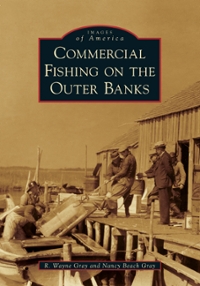Question
Question 11 pts Which of the following is NOT a trend in plant evolution? Group of answer choices development of vascular tissue more time spent
Question 11 pts
Which of the following is NOT a trend in plant evolution?
Group of answer choices
development of vascular tissue
more time spent in the gametophyte phase
development of roots
decrease dependence on water
development of seeds
Flag question: Question 2Question 21 pts
Which of the following are mutualistic symbiotic fungi? (hint: more than one answer is possible)
Group of answer choices
ring worm
mycorrhizae
bread mold
lichen
Flag question: Question 3Question 31 pts
The angiosperms and gymnosperms differ from all other plants by (hint: more than one answer is possible)
Group of answer choices
possession of vascular tissue.
presence of cuticle coat.
use of alternation of generation.
production of seeds.
production of pollen.
Flag question: Question 4Question 41 pts
What is the disease causing the demise of American bats?
Group of answer choices
mushroom cap syndrome
Chagas
HIV
White-nose syndrome
Bat Blight
Flag question: Question 5Question 51 pts
Which of the following are examples of Angiosperm? (hint: more than one answer is possible)
Group of answer choices
apple tree
blue spruce (a.k.a. Christmas tree)
ginkgo tree
oak tree
tomato plants
Flag question: Question 6Question 61 pts
Gymnosperm
Group of answer choices
were the first plants to not have a swimming sperm which freed them from water for reproduction.
were the first plants to develop flowers for pollination.
are divided into two groups - the monocots and dicots.
are the most advanced group of plants in the plant kingdom.
were the first plants to develop vascular tissue.
Flag question: Question 7Question 71 pts
Which phylum within the Fungi Kingdom includes the group of fungi that are causing the demise of amphibians?
Group of answer choices
Chytridiomycota
Ascomycota
Glomeromycota
Basidiomycota
Zygomycota
Flag question: Question 8Question 81 pts
What is the carbohydrate shared by fungi and animals that shows their close ancestry and also makes it difficult to treat people with fungal infections?
Group of answer choices
fungi have a cell wall made of chitin that animals also use for other functions
fungi have a cell wall made of cellulose that animals also use for other functions.
fungi and animals do not share a common ancestor
both groups lack carbohydrates in the cells
both groups have chitin in their plasma membranes
Flag question: Question 9Question 91 pts
Club mosses are considered to be more advanced than true mosses because they contain which of the following characteristic that is missing from true mosses?
Group of answer choices
chloroplasts
vascular tissue
cuticle
pollen
Flag question: Question 10Question 101 pts
Most (not all) fungi have the following characteristic.
Group of answer choices
multicellular
cells contain chloroplasts
cells have no nucleus
cell wall is comprised of cellulose
Flag question: Question 11Question 111 pts
Which are seeded/vascular plants? (more than one answer is possible)
Group of answer choices
pine trees
dogwood trees
ferns
mosses
angiosperms
Flag question: Question 12Question 121 pts
Which statement is not accurate regarding monocot plants?
Group of answer choices
Their vascular bundles are scattered throughout the shoot of the plant.
They have parallel leaf veins.
Their flower structures are in multiples of 4 or 5.
Grass is an example of a monocot.
They do not usually undergo secondary growth.
Flag question: Question 13Question 131 pts
All but which of the following would be associated with vascular plants?
Group of answer choices
angiosperm
mosses
gymnosperm
dicots
ferns
Flag question: Question 14Question 141 pts
Which trait evolved first in plants?
Group of answer choices
fruit
seeds
cuticle
xylem
roots
Flag question: Question 15Question 151 pts
The cuticle of a plant is primarily for
Group of answer choices
retention of water.
capture of sunlight
conduction of fluids.
protection from sunlight exposure.
absorption of carbon dioxide.
Step by Step Solution
There are 3 Steps involved in it
Step: 1

Get Instant Access to Expert-Tailored Solutions
See step-by-step solutions with expert insights and AI powered tools for academic success
Step: 2

Step: 3

Ace Your Homework with AI
Get the answers you need in no time with our AI-driven, step-by-step assistance
Get Started


